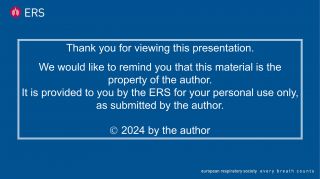18 January, 2024 | Online
18:00-19:00 CET
Chair: Dr. Niki L. Reynaert (Maastricht, Netherlands)
Speaker: Dr. Paul Skipp (Southampton (Hampshire), United Kingdom)
Fees: Free for ERS members / €10 for non-members
Although a lot of emphasis in research has been placed on genomic analyses, most biological processes are executed by proteins. The aggregate of protein expression and posttranslational modifications can be assessed by high-throughput proteomics. As such, proteomics is a powerful tool in understanding complex biological systems and it can shed light on the molecular mechanisms underlying disease pathogenesis and progression. Moreover, it can identify putative therapeutic targets, and proteomic signatures or components thereof can be used as disease biomarkers. There are various ways to perform proteomic analyses and it can be applied on a variety of clinical sample types.
Educational aims
- To understand the principles underlying high-throughput proteomic analyses and the various mass spectrometry platforms (what is analysed and how, what type of information is yielded) (this will not include in situ analyses as that will be a topic for a future webinar)
- To understand what sample types can be used for proteomic analyses, how samples should be collected and stored, and which controls should be included
- To receive insight into how analyses are performed, how to make sense of the data obtained, how to connect readouts to biological processes
- Examples will be provided based on key publications using proteomics to illustrate what type of questions can be addressed using this technology and how to critically review the technology in a paper
- Aspects of data sharing will be addressed
Topics
- Proteomics basic principles
- How to connect proteomic data to cellular processes
- How proteomics can help understand pathogenic processes in lung diseases
- How proteomic signatures can be used as disease biomarkers
Target audience:
- Clinicians
- Trainees
- Basic Translational scientists
- Bioinformatician
Format
This webinar will include a workshop with interactive quizzes, Q&A with audience, presentation of seminal papers and introduction to analysis workflows.
Learning outcomes
After following this webinar, participants should be able to:
- Understand the relevance of proteomics in disease characterization.
- Learn which steps are required to undertake and assess proteomics.

